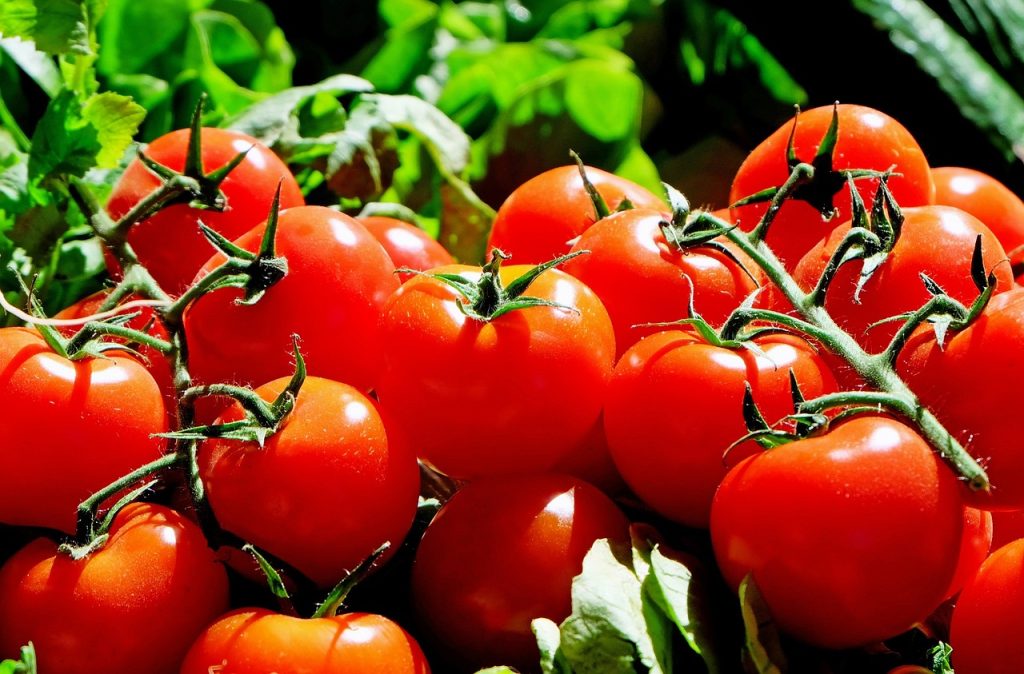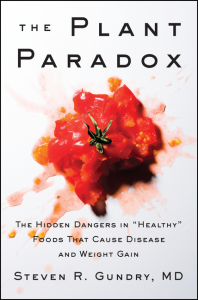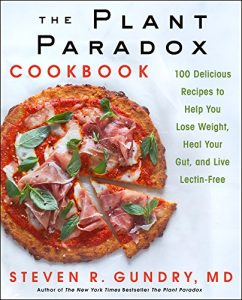Introduction
The third installment of my multi-part series, “Definitive Classics: Influential Books on Health in the Last 10 Years,” is “The Plant Paradox” by Dr. Steven R. Gundry, a thought-provoking book that challenges conventional beliefs about healthy eating and presents a controversial perspective on the impact of plants on our overall well-being. Gundry, a renowned heart surgeon turned nutrition expert, provides readers with an in-depth analysis of plant-based diets and their potential hidden dangers. In this book review, we will explore the key ideas presented in this New York Times best seller and examine the author’s arguments and evidence.
The Paradox of Plants
Gundry introduces the concept of “The Plant Paradox,” which revolves around the idea that not all plant-based foods are beneficial to our health. Contrary to popular belief, Gundry argues that many plant foods contain compounds known as lectins, which act as a defense mechanism for plants but can be harmful to human health when consumed in excess. He asserts that lectins disrupt the delicate balance of our gut microbiome and contribute to a wide range of health issues, including digestive disorders, inflammation, and autoimmune diseases.
Gundry introduces the concept of “The Plant Paradox,” which revolves around the idea that not all plant-based foods are beneficial to our health. Contrary to popular belief, Gundry argues that many plant foods contain compounds known as lectins, which act as a defense mechanism for plants but can be harmful to human health when consumed in excess. He asserts that lectins disrupt the delicate balance of our gut microbiome and contribute to a wide range of health issues, including digestive disorders, inflammation, and autoimmune diseases.
Scientific Research and Potential Dangers
Dr. Gundry supports his claims by presenting scientific research and sharing anecdotes from his own medical practice. He emphasizes that lectins are found in various commonly consumed foods, including grains, legumes, nightshade vegetables, and even some fruits. According to Gundry, the lectin content in these foods can lead to “leaky gut syndrome,” a condition in which the intestinal lining becomes permeable, allowing toxins and undigested food particles to enter the bloodstream and trigger inflammation.
By highlighting the potential dangers of consuming lectin-rich foods, Gundry aims to challenge the prevailing belief that a plant-based diet is universally beneficial for everyone. He argues that while some individuals can tolerate and even thrive on such diets, others may experience adverse effects due to lectin sensitivity. This notion is particularly significant, as plant-based diets have gained popularity in recent years and are often regarded as panaceas for various health problems.

The Importance of Food Preparation
One of the key takeaways from the initial section of the book is Gundry’s emphasis on proper food preparation methods to mitigate the harmful effects of lectins. He provides practical tips for reducing lectin content in foods, such as soaking, fermenting, and pressure cooking. Gundry explains that these techniques can help break down lectins and make them more tolerable for our bodies, allowing us to enjoy the benefits of plant-based foods without the associated health risks.
The Plant Paradox” sets the stage for a paradigm shift in our understanding of plant-based diets and challenges the notion that all plant foods are inherently good for us. Gundry presents a compelling argument, backed by scientific evidence and clinical experience, regarding the potential negative effects of lectins on our health. In the subsequent section of this review, we will explore Gundry’s recommendations for adapting our diets and making informed choices about the foods we consume.
Classic Content and New Concepts
As this all-time classic book of health continues, Dr. Gundry delves deeper into the practical aspects of adopting a lectin-free or lectin-reduced diet. He provides readers with a comprehensive guide on how to make informed choices when it comes to selecting and preparing food, allowing them to optimize their health and well-being.
Moreover, Gundry introduces the concept of “resistant starches” as an alternative to high-lectin foods. Resistant starches, such as green bananas and cooked and cooled potatoes, are known to be easier on the gut and less likely to cause inflammation. By incorporating these resistant starches into our diets, Gundry suggests that we can maintain a healthy balance between the benefits and potential harm of consuming plant-based foods.

Identifying High-Lectin Foods
Gundry emphasizes the importance of being able to identify and avoid foods that are high in lectins. He provides readers with a detailed list of common foods that contain high levels of lectins, including grains, legumes, certain vegetables like tomatoes and peppers, and even some fruits like bananas and berries. By familiarizing themselves with this list, readers can begin to make conscious decisions about which foods to limit or eliminate from their diets.
The Benefits of a Lectin-Limited Diet
While Gundry acknowledges that a completely lectin-free diet may be difficult to achieve, he emphasizes the importance of reducing lectin intake to improve health outcomes. He explains how minimizing lectin consumption can lead to a reduction in inflammation, improved digestion, increased energy levels, and even weight loss. By understanding the potential benefits of a lectin-limited diet, readers are motivated to make the necessary changes to improve their overall well-being.
Alternative Food Choices
To help readers transition to a lectin-limited diet, Gundry provides a wealth of alternative food choices that are low in lectins and rich in nutrients. He suggests focusing on consuming healthy fats, such as avocados and olive oil, lean proteins like grass-fed meats and wild-caught fish, and an abundance of non-starchy vegetables like leafy greens and cruciferous vegetables. By incorporating these alternatives into their diets, readers can ensure they are obtaining essential nutrients while minimizing their lectin intake.
Food Preparation Techniques
Gundry explores various food preparation techniques that can help reduce lectin content and enhance the overall nutritional value of plant-based foods. He encourages readers to soak, ferment, and pressure cook high-lectin foods to break down lectins and make them more digestible. Additionally, Gundry provides guidelines for cooking vegetables to preserve their nutritional integrity and recommends choosing organic and locally sourced produce whenever possible to minimize exposure to pesticides and other harmful chemicals.

Supplementation
In addition to dietary changes, Gundry discusses the potential benefits of supplementation for individuals following a lectin-limited diet. He highlights specific supplements that may help support gut health, reduce inflammation, and optimize overall well-being. However, he emphasizes the importance of consulting with a healthcare professional before incorporating any supplements into one’s routine, as individual needs and circumstances may vary.
By presenting practical strategies and alternative food choices, Gundry empowers readers to make informed decisions about their diets. He provides a roadmap for adapting to a lectin-limited lifestyle, emphasizing that individual variations exist and that experimentation is key to finding what works best for each person. While some readers may find it challenging to implement all the recommendations, Gundry’s guidance serves as a valuable resource for those seeking to improve their health through dietary changes.
Steven R. Gundry challenges the traditional notions of plant-based diets and introduces the concept of lectins as potentially harmful compounds found in various plant foods. By providing scientific evidence and personal anecdotes, Gundry makes a persuasive case for the adverse effects of lectins on human health. He guides readers through the process of identifying high-lectin foods, understanding the benefits of a lectin-limited diet, and making informed choices when it comes to selecting and preparing food.

Criticism and Controversy The Plant Paradox
While “The Plant Paradox” presents a compelling argument and provides practical advice, it is not without its critics and controversies. It is important to consider different perspectives and evaluate the book’s claims critically.
Limited Scientific Consensus
One point of contention surrounding “The Plant Paradox” is the limited scientific consensus on the impact of lectins on human health. While Gundry cites scientific studies and draws on his own clinical experience, the scientific community has not reached a unanimous conclusion regarding the harmful effects of lectins. Some studies suggest that lectins can be problematic for certain individuals, while others indicate that the risks may be overstated. It is important to approach the topic with an open mind and consider a range of scientific perspectives.
Potential Nutrient Deficiencies
Gundry’s proposed lectin-limited diet faces another criticism for its potential to cause nutrient deficiencies. By eliminating or significantly reducing the consumption of lectin-rich foods like grains, legumes, and certain vegetables and fruits, individuals may miss out on important vitamins, minerals, and fiber. It is crucial to ensure that alternative food choices adequately compensate for any potential nutrient gaps and that a varied and balanced diet is maintained.
Individual Variations and Personalization
While Gundry acknowledges that individual variations exist, some readers may find it challenging to adapt the lectin-limited diet to their specific needs and preferences. The recommendations provided in the book may not be suitable for everyone, and personalized guidance from a healthcare professional is crucial to ensuring optimal nutrition and well-being. It is important to approach dietary changes with caution and to consider individual factors such as existing health conditions, allergies, and personal tolerance levels.
Potential for Overemphasis on Lectins
Critics argue that “The Plant Paradox” may overemphasize the negative effects of lectins while neglecting the potential benefits of plant-based diets. Fruits, vegetables, whole grains, and legumes have long been recognized as essential components of a healthy diet, providing vital nutrients, fiber, and phytochemicals. By focusing primarily on lectins, the book may inadvertently discourage individuals from consuming these beneficial plant foods, leading to an imbalanced diet

Lack of Long-Term Evidence
“The Plant Paradox” primarily draws on short-term studies and anecdotal evidence, and there is a scarcity of long-term research to support the long-lasting effects of a lectin-limited diet. While initial results may appear promising, the sustainability and potential risks of such dietary changes over extended periods remain uncertain. It is essential to consider the long-term implications and continue to monitor scientific developments in this field.
“The Plant Paradox” presents a thought-provoking perspective on the potential negative effects of lectins in our diets. The book offers practical advice for reducing lectin intake and optimizing overall health. However, it is essential to approach the book with a critical mindset, considering the limited scientific consensus, potential nutrient deficiencies, individual variations, and the potential for overemphasis on lectins.
Impact and Considerations
“The Plant Paradox” has undoubtedly had a significant impact on the way people think about their diets and the potential impact of lectins on their health. While the book has its strengths and weaknesses, it has sparked important conversations and encouraged individuals to reevaluate their food choices. Here, we explore the broader implications of the book and provide some considerations for readers.
Critical Evaluation
As with any book, it is essential to approach “The Plant Paradox” with a critical mindset. While Gundry presents compelling arguments, it is crucial to consider the limitations and controversies surrounding the topic. Engaging with alternative viewpoints and scientific research can help develop a well-rounded understanding of the subject matter.
Individual Response and Experimentation
Individual responses to dietary changes can vary significantly. What works for one person may not work for another. It is important to approach dietary adjustments as an ongoing experiment, paying attention to how one’s body responds to different foods and making adjustments accordingly. Personalization is key, and individuals should be open to modifying their approach based on their own unique needs and feedback from their bodies.
Consulting with Healthcare Professionals
Making substantial changes to one’s diet should be done in consultation with healthcare professionals, particularly for individuals with pre-existing health conditions or specific dietary needs. Healthcare professionals can provide valuable guidance, help address any potential nutrient deficiencies, and ensure that the overall dietary approach aligns with an individual’s specific health requirements.
Balanced and Varied Approach
While “The Plant Paradox” focuses on the potential risks of lectins, it is important to remember that a healthy diet is characterized by balance and variety. Completely eliminating entire food groups, such as grains and legumes, may result in a diet that lacks essential nutrients. It is crucial to incorporate a diverse range of whole foods, including fruits, vegetables, whole grains, lean proteins, and healthy fats, to ensure optimal nutrition and overall well-being.
Consideration of Lifestyle and Ethical Factors
When evaluating dietary choices, it is essential to consider lifestyle and ethical factors as well. Plant-based diets are often chosen for reasons beyond health, such as environmental sustainability, animal welfare, and cultural or personal beliefs. Individuals should take into account their personal values and preferences when making decisions about their dietary choices.
Continued Research and Adaptation
The scientific understanding of nutrition and health is an evolving field. New research findings and emerging evidence may shape our understanding of lectins and their potential impact on health. It is important to stay informed and updated on the latest scientific developments and to be open to adjusting dietary choices based on new evidence.
Conclusion
“The Plant Paradox” has undoubtedly contributed to the ongoing discourse on nutrition and the potential impact of lectins on our health. While the book presents an alternative perspective, readers should approach it critically, considering individual variations, consulting with healthcare professionals, and maintaining a balanced and varied approach to their diets. By taking a comprehensive and adaptable approach, individuals can make informed decisions that align with their personal health goals and values.
If you enjoyed reading this review, please take a look at the others in my series, “Definitive Classics: Influential Books on Health in the Last 10 Years.”
Exposed Secrets Of “The Obesity Code” – The Best Review
Your Better Brain Health: “Genius Foods”: The Official Review
Unlock The Circadian Code – The Secret of a Vibrant Life
New Life Hack: Discover How Not to Die

Systems Engineer > Project Manager > Tech Entrepreneur > Health Consultant > Website Specialist


